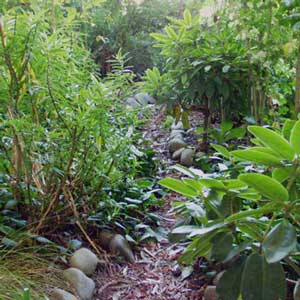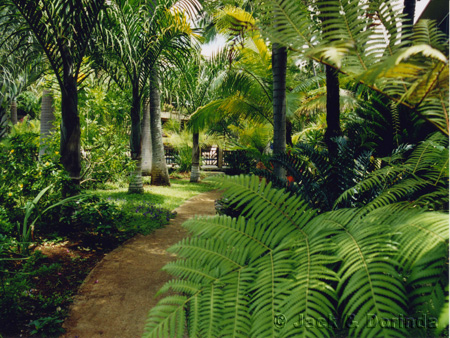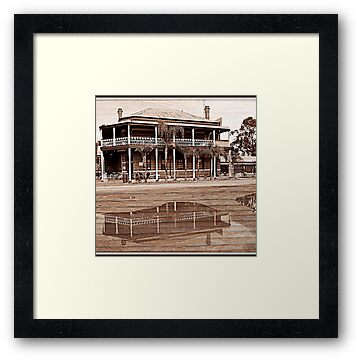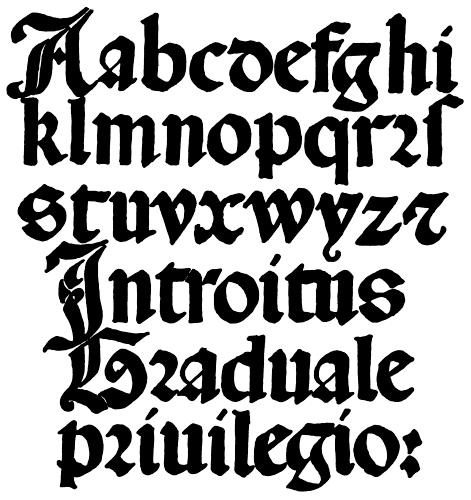I have abandoned all hope, or at least I am trying too. It's one of those things that crept up on me, it wasn't a conscious decision; more of a realisation that over time I had been letting go of all sorts of long-held hopes and wishes. That incrementally this letting-go had flooded the landscape of my once hope-filled world, and that there there is not much hope for survivors. Living the path of a degenerative and terminal disease is a fabulous opportunity to allow this to happen. If I were to have regretful moments however, I would regret that I hadn't learned this lesson sooner; I might resent that it has taken this dire disease to push me to grow this way. I could lament that I am one stubborn bastard. But there is nothing to be gained from such self-flagellation, except to be reminded that it can be worth sharing this stuff, that just maybe someone out there might have their own variety of learning from it. I hold no such hopes however. It will, or will not, happen.
“It's not the despair, Laura. I can take the despair. It's the hope I can't stand. "
~ Brian Stimpson (John Cleese), Clockwise (1986)
The movie was cute, a good vehicle for all the usual John Cleese quirks and tics, but largely forgettable to me apart from this one line, which has stuck ever since. The plot is a farce where Cleese plays a school master obsessed with timeliness attempting to travel to another place to give an important address on the subject but becomes entangled in a series of snags and delays along the way, roping in student Laura along the way. At each setback there is a renewed and more frantic effort to make it there on time.
I really get what he's saying. Hope and despair are inseparable, like the two sides of a coin. Hope says "I am NOT despair, Despair is the Other Thing which you Do Not Want." You cannot have hope without a background nagging insistence that despair is the other possibility.
Hope is asking. Hope is a supplicant to chance, or God, it is a buffer against having to equally accept in the hopeful moment the likelihoods of that which is not hoped for. To hope is of course to risk disappointment.
Hope wants things. Hope, however vague, has designs on outcomes. Maybe we want something as broad as 'world peace' or you hope for your unhappy family member to 'find happiness' but how conceited does that make us? These well-meaning hopes tell us something about ourselves and just how egotistical we are. We are sure that what is right and good and best is for world peace or our brother's happiness, when Reality might have other, very good, plans. Imagine telling God directly what you wanted to have happen; just to dictate to them what is right. Hope pleads "please let this thing I want to believe in exist". As if, theists.
We talk about "not getting one's hopes up", we understand the pitfalls all too well, and yet we persist. We acknowledge our tendency towards hopefulness and assume it is natural. But what if we learned it, what if it were just some odd survival mechanism we developed to help us cope with an uncontrollable, unpredictable world?
Don't I sound like the sad sack, eh? No hope. Hopeless. Quite the contrary, dear reader. What I've discovered since losing my hope - not all hope, I'm far from perfect - is a far more subtle and soulful breed of Optimism. As my hopes for certain things sloughed off in the searing luminescence of my ever-increasing decay and tilted approach towards The End Days I found more and more exactly how positive my expectations of much of the world and all who sail in her are. I found I was also losing old cynicisms, old ingrained despairingnesses as well - the expectations that this person would more often tend to be an asshole than not or that the GOP would continue to remorselessly avoid the real issues of American needs, for example. It didn't matter when I was wrong either. It allowed the expectation of whatever happening back in. Yes, losing hopes increased the amount of doubt and uncertainty in my life, and my natural response in this vast and empty plain of possibilities was to assume that mostly good things happen. It seems that I am mostly right about that, happily, as well.
I do not hope that I'll get better. I might, but chances are pretty darn well against it. I don't hope for a 'space junk moment', but I allow for its possibility happily. I do not despair of the unlikelihood of such an awesome death happening either. I just recognize it as a cute manifestation of my general tendency to assume that good things mostly happen and despite well-worn patterns, things change all the time.
They say that prediction is faith in the past. Hope says, usually "please don't have the past repeat itself, I want something different". Or just as fearfully "please let it never change". It as a plea to have control, nothing more. Despair in a nice frock and sun hat. Hope has no faith. Hope does not trust. How sad is hope?
Abandon hope, all ye who enter here. For then, you may see that regardless of our petty desires, fears and foibles - perhaps even in spite of them - mostly good things happen, and if it doesn't seem that way now, just wait a while and it will when you look back.
(I had no hopes when I started my natural burial fund, and look what's happening there!)






















